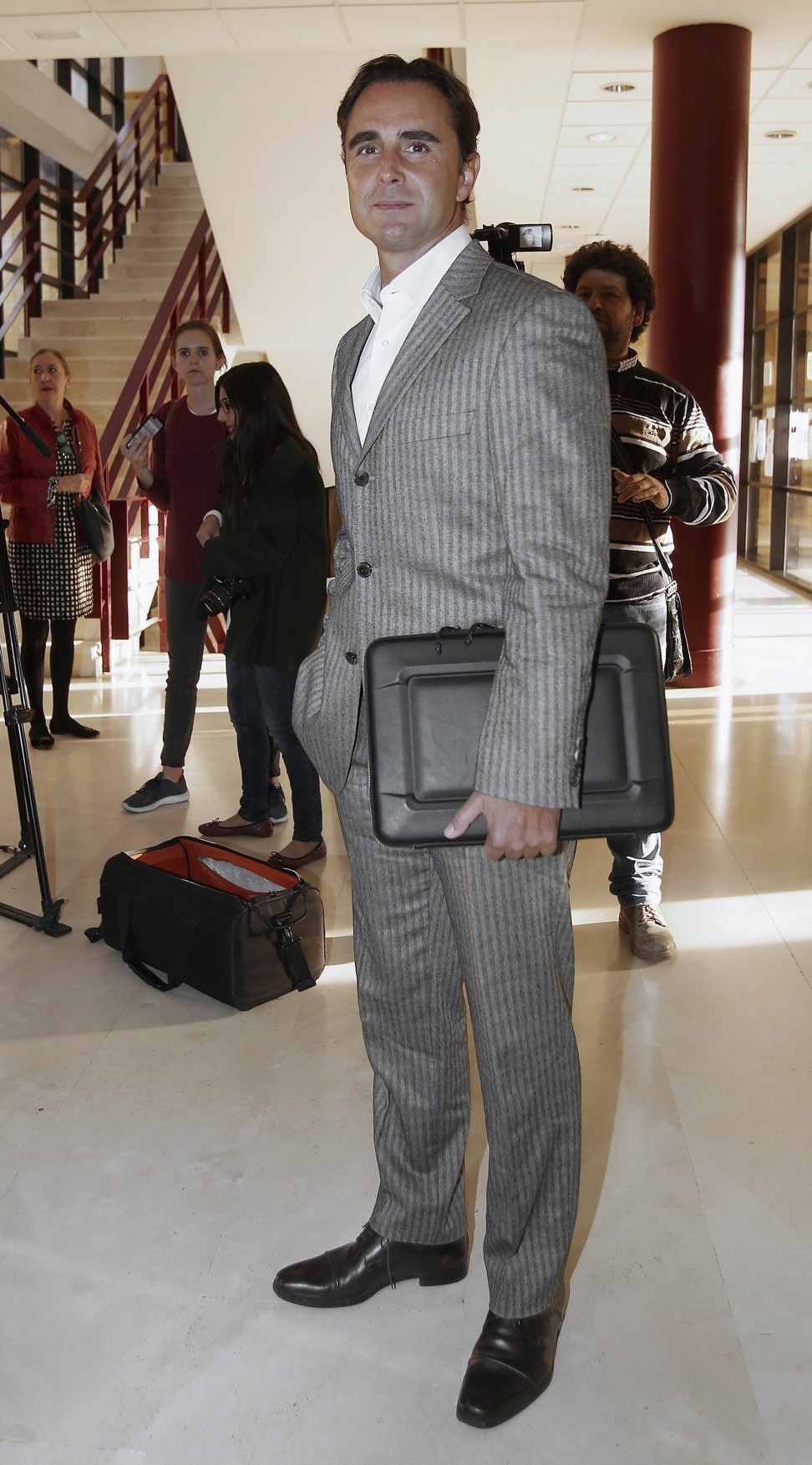
HSBC leaker Herve Falciani set free after being detained in Spain at the request of Switzerland
Herve Falciani leaked a cache of documents allegedly indicating that HSBC’s Swiss private banking arm helped more than 120,000 clients to hide US$222 billion from tax authorities
A Spanish judge on Thursday freed Herve Falciani, a former HSBC computer analyst detained in Madrid a day earlier at the request of Switzerland for leaking documents alleging widespread tax evasion, on bail, a judicial source said.
The judge seized Falciani’s passport and ordered the 46-year-old French-Italian national to report weekly to a court while his extradition request is considered, the source added.
“He was arrested in Madrid, in the street on the way to a conference,” a top police official said on Wednesday.
The official did not say why Falciani, a French-Italian national, was wanted by Switzerland.
A Swiss court in 2015 convicted Falciani of aggravated industrial espionage and handed him a five-year prison sentence. He did not attend his trial and has avoided Switzerland since.
Falciani leaked a cache of documents allegedly indicating that HSBC’s Swiss private banking arm helped more than 120,000 clients to hide €180.6 billion (US$222 billion) from tax authorities, sparking the so-called “Swissleaks” scandal.
While he is widely viewed as a whistle-blower and hailed as a hero in countries where his leaked information is helping catch tax cheats, Swiss authorities prosecuted him for data theft, industrial espionage, and violating the country’s long-cherished banking secrecy laws.

“It is very regrettable that he was arrested, we don’t understand it,” the president of Spain’s tax inspectors union Gestha, Carlos Cruzado, said, adding he witnessed Falciani’s detention as he arrived at a university to speak at a conference.
“The paradox is that he was detained at the entrance to a debate on the need to protect whistle-blowers and his chair was left empty. We were going to debate the fact that Spain is one of the European countries where fewer measures have been implemented to protect whistle-blowers.”
Falciani became an IT worker for HSBC in 2000 and moved to the bank’s offices in Geneva in 2006.
The so-called “Snowden of tax evasion” and “the man who terrifies the rich” then obtained access to a massive database of encrypted customer information.
He took the client list in 2007 and went to Lebanon with his mistress the next year planning to sell the data. Swiss authorities described it as “cashing in”.
Yet suspicious bankers in Lebanon were not interested in buying the dubiously sourced client list and at least one tipped off their Swiss counterparts to Falciani’s activities.
Falciani then got in contact with European fiscal authorities and began passing them the pilfered information, which subsequently led to the prosecution of tax evaders including Arlette Ricci, heir to France’s Nina Ricci perfume empire, and the pursuit of Emilio Botin, the late chairman of the Spanish bank Santander.
He rejects that he was only seeking financial gain, insisting he had wanted to expose how banks support tax evasion and money laundering.
Falciani, 46, was arrested in Barcelona in July 2012 on an international warrant seeking his extradition to Switzerland after he arrived by boat from the port of Sete in France.
He then spent a couple of months in a Spanish prison.
In 2013, Spain’s High Court ruled against extraditing Falciani on the grounds that the charges he faced in Switzerland are not considered crimes under Spanish law.
In an interview with top-selling Spanish daily El País in 2013, Falciani said that about a month before he fled to Spain, US justice officials who he was collaborating with from Paris warned him his life was at risk.
“I had two options: start a new life in the United States or travel somewhere else to gain time. They told me that the only safe place in Europe would be Spain, which had used my information with success in important cases,” he told the newspaper.

.png?itok=arIb17P0)